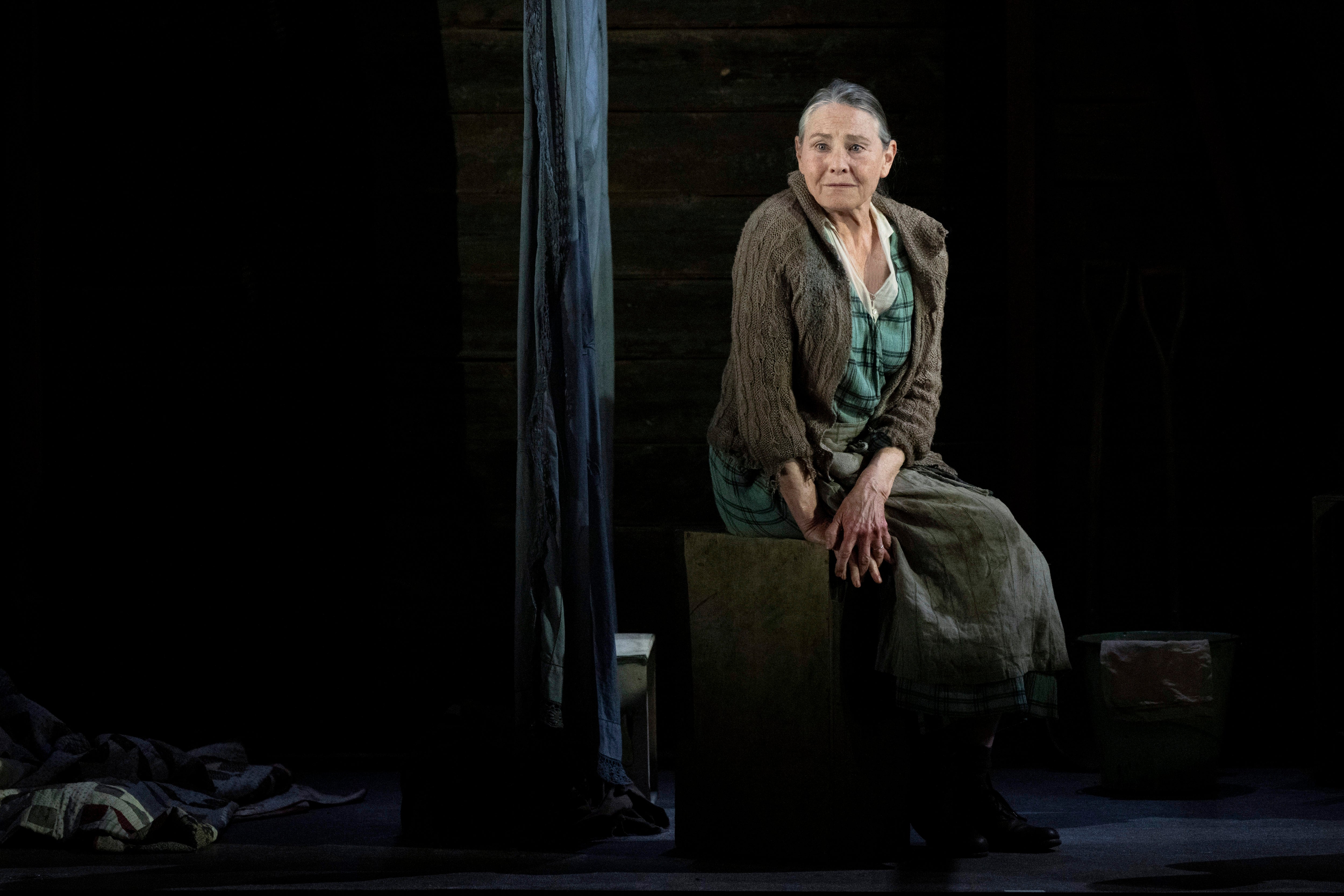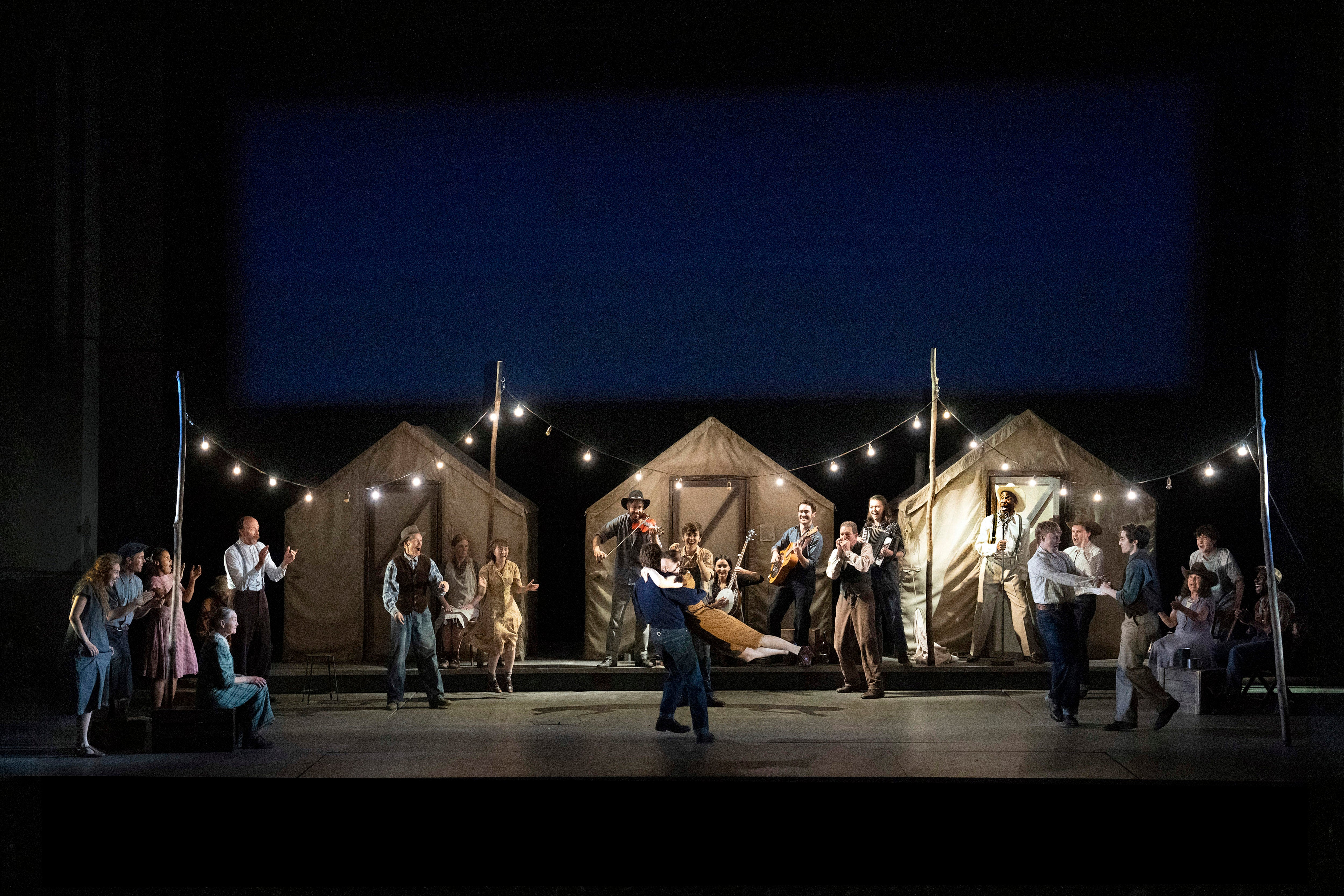The Grapes of Wrath review: Steinbeck’s hymn to human misery and endurance is epic but scrappy on stage
Cherry Jones is wry and warm in Carrie Cracknell’s revival of Steinbeck’s story about a sprawling clan of dustbowl refugees in the Depression era – but the elements of this three-hour production don’t always fully connect

John Steinbeck’s classic The Grapes of Wrath might be a bona fide Great American Novel but there’s something deeply un-American about its values. Dreaming isn’t enough, it argues. The system is rigged. God doesn’t care. Collective struggle is the answer. These subversive messages shine through Carrie Cracknell’s epic but scrappy three-hour adaptation, which trails behind a sprawling clan of dustbowl refugees in the Depression era.
At first, the grey-haired Ma (the warm, wry Cherry Jones) is her family’s spiritual leading light, spurring them onwards on their dream of a life of sweet sunshine and oranges in California. But when (spoiler alert) that dream sours like a Tropicana carton left on a warm windowsill, her relentless Christian positivity is replaced by other, more dangerous ideologies. Former preacher Jim (Natey Jones) lost his faith a while ago, so when he sees that rich farmers are exploiting the desperation of displaced families to drive wages down, he starts to wonder whether collective bargaining isn’t the answer.
There’s an inevitable grinding misery to this story of a clan of poor workers being picked off by the sharp claws of state brutality, disease and starvation. But the tone of Cracknell’s production is weirdly perky initially – perhaps because Frank Galati’s faithful 1988 adaptation carefully gives each family member their party piece, not picking favourites. With shades of Oklahoma! but without the singing, yokel wit and wisdom, the first half is served up on a road trip where an implausible number of bodies pile onto a single jalopy.
"They ain’t human,” says one mechanic to another as they patch up this beleaguered truck. "A human being couldn’t stand to live like they do.” But in the second act, these caricatures show that they’re flesh and blood, after all.
As the family’s bad boy Tom, Harry Treadaway simmers with compelling frustration, ready to explode at any moment against a system that’s bent on crushing him. And the pregnant Rose of Sharon (Mirren Mack) feels permanently primed for catastrophe, too, her childlike optimism washed away as flood waters rise. Cracknell brings out the obvious parallels with modern-day migration injustices by showing how these displaced farmworkers are at the mercy of, first, climate disasters, then a state that criminalises and silences them – police torch their flimsy tents and beat up anyone who looks like a “red” organiser.
It’s brutal, powerful stuff. But somehow this production still doesn’t have the aesthetic or thematic boldness to link together its two halves, to rethink the book’s hackneyed (and biologically implausible) final image, or to show us which members of this travelling family we should hitch our hearts to.

The design looks like it’s inspired by old movies – a wide, underused cinema screen ribbons across the stage, and moments of violence are broken up in monochrome flashes of light – but it doesn’t capture the sparse brutality of America’s inhospitable landscapes. And composer and singer Maimuna Memon delivers heartrending folk songs that draw parallels with modern-day refugees, but her presence on stage feels underexamined.
Instead, the most powerful moments come when the whole cast sing together, hymning Steinbeck’s plural approach to human misery and endurance.
National Theatre, until 14 September
Join our commenting forum
Join thought-provoking conversations, follow other Independent readers and see their replies
Comments
Bookmark popover
Removed from bookmarks